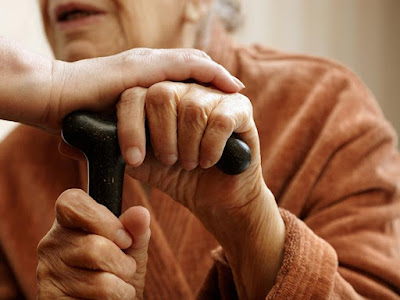Filenews 22 November 2022 - by Marilena Panayi
Gaps in the training and specialization of doctors, nurses, health professionals and caregivers of elderly people, as well as a lack of doctors specializing in geriatrics, are found in Cyprus. At the same time, there does not seem to be sufficient control of the services provided, while planning is needed to prevent and treat diseases that afflict the elderly.
Life expectancy in Cyprus is 84.8 years for women and 80.0 years for men. In the EU, life expectancy is on average 80.9 years with healthy life expectancy (which also seems to be found in Cyprus) of 63.7 years.
The draft of the National Strategy for the Health of the Elderly has been prepared by the technical committee for the elderly of the Ministry of Health in collaboration with the participants in the workshop on the health of the elderly and is currently in the hands of all stakeholders for study and submission of suggestions.
In general, and as it emerges from what is mentioned in the draft Strategy, in Cyprus, despite the actions already taken, there is still a gap in specialized personnel for the elderly. There are difficulties in synchronising state services involved in issues relating to the health of the elderly, the need to allocate additional time to elderly patients, especially in health centres and rural areas, and inadequate social home care. It also highlights the need to support the elderly in technology issues which, in addition to contributing to the socialization of the individual, will also help fill the gap that seems to have been created after the implementation of the GHS and the operation of an electronic system, data recording and patient information.
"The support of healthy aging through home care is achieved through home caregivers, based on scientific training programs but also through the training of domestic workers, aiming at the quality of the services offered and the safety of the caregivers", it is stated in the draft of the Strategy and added: "At the same time, a mechanism of general supervision of caregivers is needed to implement good practices. It is emphasized that through these processes, the autonomy of the elderly must be maintained. In addition, there must be a discharge for informal caregivers and recognition of the care provided by relatives/friends."
At the same time, "comprehensive research, continuous education and proper information of the medical community, nurses and caregivers is needed" and as stated: "There is a great need for the proper education of all health professionals related to the health of the elderly".
It is emphasized that "the best thing would be to promote and certify the profession of caregivers, while at the same time offering psychoeducation on dementia to health professionals". This can be achieved, "through collaboration with universities to provide educational programs and master's degrees to nurses, caregivers, and other health professionals."
A big gap, it says, "is also the learning of the language, (e.g. they may not speak Greek) and the lack of proper education of foreign caregivers who often do not possess the right specialty to take care of the elderly or cannot recognize signs and symptoms. Sometimes, in fact, this group of caregivers does not know where its members can turn to get such specialized training. There is also a problem of geriatric support."
Four main strategic axes
The Strategy "lays down the preservation and improvement of the health of older people through four strategic axes: Prevention, promotion of healthy ageing, friendly environment, research and education. As far as prevention is concerned, the Strategy identifies gaps and makes suggestions. For example, as stated, "older people need to do two types of physical activities every week." This could be achieved through information and awareness-raising campaigns for the elderly regarding the benefit of physical activity, while actions could also be implemented in the fields of heart disease, nutrition and osteoporosis while increasing the number of geriatricians who exist and offer services in Cyprus.
Prevention and chronic diseases
Inadequate prevention is described by a specific example concerning oral health which, as pointed out, "is important for overall health and well-being". As it is characteristically stated, based on official data, "40% of the elderly have not visited a dentist in the last year. About 19% have untreated caries, while 70% have periodontal disease. Poor oral health can negatively affect diet and the proper management of chronic diseases." For the treatment of chronic diseases, "specially trained nursing staff is needed who work with a primary care doctor or geriatrician". A good practice is the operation of "chronic care clinics" where patients with the same disease are trained in groups. "This approach, for example, can help patients with diabetes achieve better glucose control."
